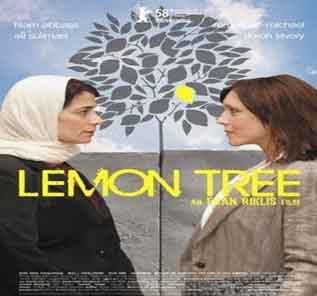
The Israel-Palestine conflict is often narrated through the lens of politics, terrorism, and armed aggression. But there are stories that unfold far from the echo chambers of diplomacy and warfare—stories that dwell in quiet homes, stolen orchards, broken trust, and unresolved love. Lemon Tree (2008) and Omar (2013) are two such cinematic journeys that illuminate the deeply human dimensions of occupation and resistance. One film emerges from an Israeli director’s empathetic gaze, the other from a Palestinian filmmaker’s raw truth. Together, they offer an experience far more powerful than political posturing: they force us to feel what it means to live with loss that becomes routine.

Lemon Tree, directed by Israeli filmmaker Eran Riklis, tells the story of Salma Zidane, a Palestinian widow who takes on the Israeli state to protect her ancestral lemon grove. When the Israeli Defense Minister moves into the house across from hers, security services declare her trees a threat. What follows is a symbolic and personal legal battle, where land is no longer mere property—it is memory, identity, and dignity. The film resists noise and sensationalism; instead, it quietly shows how the language of justice falls silent in the face of security paranoia. One of its most powerful threads is the wordless connection between Salma and the Minister’s wife—two women on opposite sides, bound by a shared sense of unease, invisibility, and quiet rebellion.
In contrast, Omar, directed by acclaimed Palestinian filmmaker Hany Abu-Assad, is sharper, more volatile. It tells the story of a young Palestinian man who climbs the separation wall to meet his lover and his comrades in armed resistance. When he is arrested by Israeli forces, a web of betrayal, surveillance, and psychological warfare begins to unravel. Omar is not just a story of imprisonment; it is a harrowing study of how trust erodes under occupation. Here, even love is not free from suspicion, and the finest cracks in loyalty can lead to death or disgrace. The emotional claustrophobia is palpable—this is a film where a glance, a silence, or a moment of hesitation can be fatal.

If Lemon Tree is a slow, mournful poem, Omar is a restless, haunting ballad. Both reveal the inner echoes of conflict—the sound that lingers after the bombs stop, the questions that remain when headlines move on. They don’t offer heroes or solutions. Instead, they center the ordinary people—the ones who lose battles every day without making the news, yet continue to live, resist, and dream.
While the world debates the Israel-Palestine issue through statistics, treaties, and ceasefires, these films remind us where the deepest scars form—not on land, but within human souls. And perhaps, that is where the most permanent walls are built—walls that no military can tear down, and no negotiation can fully dismantle.
Subscribe to Our Newsletter
Get the latest CounterCurrents updates delivered straight to your inbox.
Ashish Singh has finished his Ph.D. coursework in political science from the NRU-HSE, Moscow, Russia. He has previously studied at Oslo Metropolitan University, Norway; and TISS, Mumbai.










































